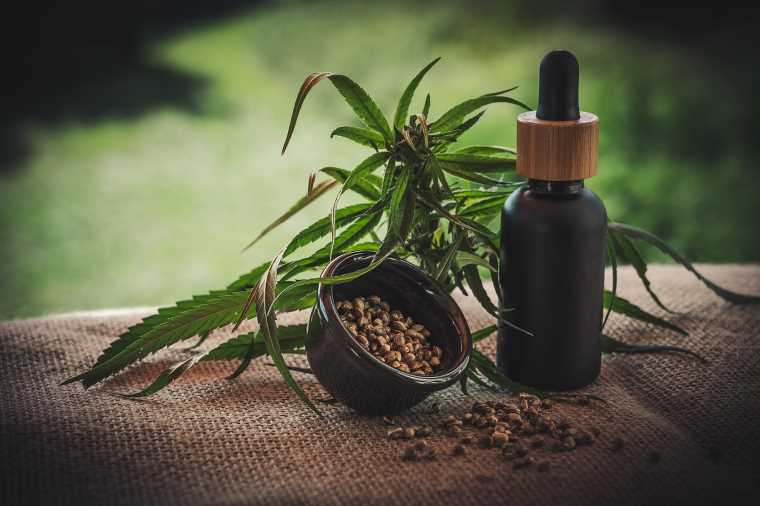Researchers studying the lesser-known cannabis extract Cannabigerol (CBG) say study participants reported measurable reductions in feelings of anxiety and stress after taking the compound. Those same participants displayed statistically significant improvements in short-term memory, an unexpected benefit given the negative associations between cannabis and memory.
The researchers behind the findings caution that further study of CBG is required, but initial results indicate that at least some of the anecdotal evidence about the increasingly trendy cannabis extract may be accurate.
“CBG is becoming increasingly popular, with more producers making bold, unsubstantiated claims about its effects,” said study scientist Carrie Cuttler, an associate professor of psychology at Washington State University, in a press release announcing the research. “Our study is one of the first to provide evidence supporting some of these claims, helping to inform both consumers and the scientific community.”
Increasing Claims Cannabis Extract Offers Medicinal Benefits
In an era where cannabis and its extracts are being widely touted as “miracle drugs” that can offer relief from ailments ranging from PTSD and depression to pain management and even opioid addiction, researchers hoping to prove or disprove those claims have been racing to catch up. While some studies have found significant support for some, many have been difficult to substantiate. Further complicating matters is the increased access to cannabis for both recreational and medicinal purposes that has expanded the list of potential benefits and drawbacks to cannabis use.
At the same time, researchers have been looking for ways to prove and ultimately harness the most tangible cannabinoid benefits while reducing the adverse effects. Among the most common are efforts to find parts of the cannabis plant that offer statistically viable medicinal benefits without the mind-altering narcotic effects experienced by consumption of the cannabinoid THC.
Perhaps the most studied and promoted of these non-narcotic cannabinoids is CBD. Unfortunately, while claims of its medicinal qualities are pervasive, actual science supporting these claims is still varied and sparse.
More recently, attention has begun to turn to another non-narcotic cannabinoid, CBG. Like CBD, claims about the potential medicinal benefits of CBG have begun to rapidly rise without much hard science to back them up. This rise caught the attention of the WSU team, leading them to try to decipher whether any of the purported mood-altering benefits associated with CBG are real.
Study Participants report Reduced Anxiety and Show Improved Memory
To conduct their double-blind, placebo-controlled study, Cuttler and colleagues enlisted 34 healthy cannabis users. Before taking any medication, each participant conducted an interview with the researchers via Zoom to establish a mood baseline. During each session, the participants were instructed to rate their feelings of anxiety, depression, and stress.
Next, the researchers mailed the “medication” to all study participants, with half receiving 20 mg of CBG and the others a placebo. After taking the study medication, the participants were asked to rate their feelings at 20 minutes, 45 minutes, and 60 minutes after ingestion. Like the baseline interviews, this involved rating feelings of anxiety, depression, and stress. The participants were also asked to report any feelings of intoxication.
To further bolster any results, the team switched the groups after one week, with the placebo group receiving the actual CBG cannabis extract and the others receiving the placebo. The participants were also asked to rate the same feelings at the same time intervals after each ingestion. When evaluating the results, the researchers found some intriguing correlations.
As was often reported anecdotally, the participants who took CBG reported lower feelings of anxiety at all time intervals over the placebo group. Participants also reported reduced feelings of stress at the first time interval. According to the researchers, this finding is consistent with a previous study conducted by Cuttler that found 51% of CBG users consume it to decrease anxiety, and 78% asserting its superiority over conventional anxiety medications. Conversely, the study found no correlation between CBG and feelings of depression.
Unexpected Improvements in Memory Surprise Researchers
One totally unexpected finding reported by the researchers was an improvement in the memories of participants after taking CBG. Specifically, the study participants showed a measurable and significant increase in their ability to recall a long list of names compared to those who took the placebo. Given the correlation between cannabis use and memory issues, the researchers were so surprised by this result that they said they had to check their data three times just to be sure.
“We triple-checked to ensure accuracy, and the enhancement was statistically significant,” Cuttler said.
In their study published in the journal Scientific Reports, the WSU researchers say that more studies of cannabis and cannabis extracts are needed before they can be recommended to treat specific ailments like stress or anxiety. They also note that their study had a number of limiting factors, including performing research calls via Zoom and enlisting only current cannabis users as study subjects.
For future studies, Cuttler says the team would like to launch a study that includes non-cannabis users to further characterize the associations between mood and cannabis extracts highlighted in this study. The team would also like to include physiological measurements after ingestion commonly associated with feelings of stress and anxiety. This includes measuring blood pressure, heart rate, and even cortisol levels. Depending on their findings, the team hopes that studies like theirs can help separate fact from fiction surrounding the wide range of potential benefits offered by “miracle drug” cannabis extracts like CBG.
“We need to avoid claims that CBG is a miracle drug. It’s new and exciting, but replication and further research are crucial,” Cuttler said. “Ongoing and future studies will help build a comprehensive understanding of CBG’s benefits and safety, potentially offering a new avenue for reducing feelings of anxiety and stress without the intoxicating effects of THC.”
Christopher Plain is a Science Fiction and Fantasy novelist and Head Science Writer at The Debrief. Follow and connect with him on X, learn about his books at plainfiction.com, or email him directly at christopher@thedebrief.org.

